Klinefelter teen diagnosis: The Voice of Danyelle Keller
By Chelsea Castonguay
Klinefelter teen diagnosis:
As a mom of many children, Danyelle Keller isn’t afraid to advocate for her family. However, the family was surprised by a Klinefelter teen diagnosis when her son was diagnosed at age 17. This is their story about Matthew, his diagnosis, and how the family is doing today.
Pregnancy:
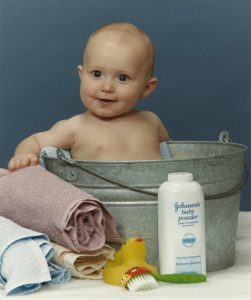
Having found the love of her life in her second marriage, Danyelle was excited to start a family with Matt. Danyelle had a daughter from aprevious marriage named Erin. Having been born with Down syndrome, Erin was adopted by Matt when he married her mom. Since she had an easy time conceiving Erin, Danyelle anticipated it would go the same when trying for a second.
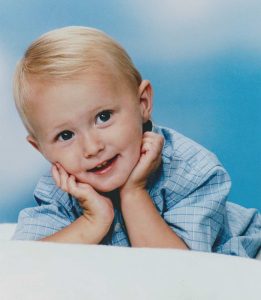

However, it took a bit longer than expected. After a year and a half of trying, the couple decided to just let things happen naturally. Danyelle said, “If God wants us to have children, we will have children. As soon as we took that attitude, we got pregnant with Matthew.”
The pregnancy was normal for Danyelle. She endured severe morning sickness throughout, and struggled to maintain her weight, but had experienced this with Erin. As Matthew was measuring large, Danyelle was induced two weeks before his due date. Matthew was born weighing 8lbs, 7 oz, and measuring 21 ¾ inches long. He was a perfect, happy baby, with no noticeable issues. He took to breastfeeding well, and hit all his milestones on time. The family had no idea that a Klinefelter teen diagnosis was lying ahead.
Early years:
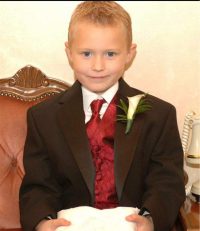

Matthew performed well in school. He was smart, and kept up with his classes. At the beginning of his sixth-grade year, Danyellebegan homeschooling the children. Their family hadgrown to include Jessica, who was adopted from Guatemala a year after Matthew’s birth. They also became pregnant with a daughter, Emily, while finishing Jessica’s adoption process.
Although he was a little socially awkward, that felt normal for Danyelle. He was also advanced in his classes, which led to boredom. His school teachers wondered if he should be moved up to a higher class, but worried it would impact him negatively in regards to social skills. They opted to keep him with his classmates, and he “did fine.”
Reflecting back:
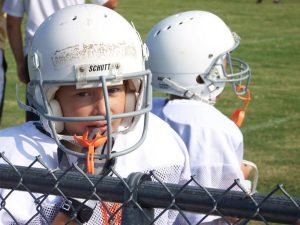



‘toowa’…but we understood what he was saying. And he could speak fine, he just couldn’t say his R’s. But my husband’s nieces and nephews, three of them needed speech therapy, so that’s just normal on the Keller side of the family.”
At 12, Matthew finally mastered his R sounds. Matthew participated in speech therapy throughout his elementary years, but as it was in a group of six other students, it didn’t feel like it set him apart. The family also hired a speech therapist who came to their home weekly, and noticed a marked improvement in his speech within a few months.
Matthew through the years:
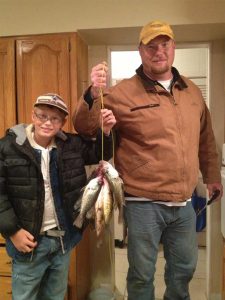

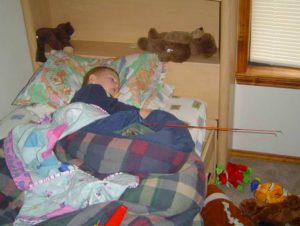

land, the outdoors has always been accessible. When thinking about their “very unique situation,” Danyelle said “Every day when my husband would get off work he would come to the house and grab Matthew and they would start walking in the woods. So that just kind of became their thing. And they would hunt together and fish together and work on outdoor survival skills together.”
Anything masculine, fixing vehicles, cleaning guns Matthew would be right alongside his dad. Even when he was little, he had a wooden toy gun and he would mimic his dad and use the supplies to “clean” it. “He grew up, because of my husband, very much an outdoor enthusiast. When I say that that kid can catch a fish in a mud puddle, I’m not kidding you.”
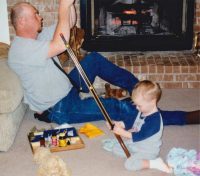

Matthew played football, but in his second year suffered an injury that precluded him from going on with the sport. Around that time, he fell in love with baseball. He spent his middle and high school years cultivating his skills in both baseball and fishing, his two passions. Though homeschooled, Matthew went to a co-op twice a week for classes. He also joined the Texas High School Bass Association and was able to fish with local students for four years of high school. He took the school to state every year.
Klinefelter teen diagnosis:
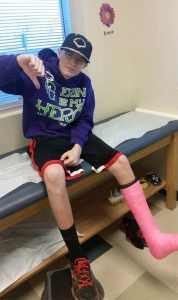



Matthew required surgery to have his testicles brought down, which the family was warned would put him at higher risk for testicular cancer later in life. It was imperative that he learn how to monitor himself for any lumps or other signs as he grew. When Matthew was 16 and a half, he went in for a sports physical and saw a new pediatrician. Right away, the doctor noticed something still wasn’t right. The pediatrician remarked that “his testicles aren’t the size they should be for a boy his age. Everything else is perfectly normal, but it could be because they were undescended for so long or it could be something else.” Then, the doctor mentioned that Matthew might have something called Klinefelter syndrome.
Researching KS:
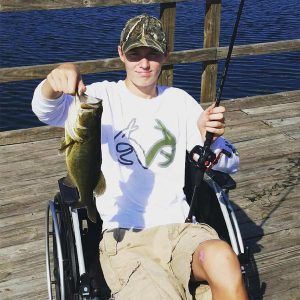

Without a clear picture of what to expect, and without any further information offered by the pediatrician, Danyelle felt herself spiraling. She ran through different scenarios of what could happen in her mind, as she tried to work through the possibility of the unexpected diagnosis.
Learning more:
Her husband’s response to the news was “it’s going to be okay,” and he immediately asked what they should do to help support Matthew. His calm reaction consoled Danyelle, and reminded her that nothing had changed. Whether or not Matthew had KS, he was still the same child he’d always been. Together, they dug deeper into the resources found online, and learned KS is considered a spectrum disorder. However, the most disheartening thing they discovered was that Matthew would most likely be infertile. Matthew loved playing with children, and looked forward to eventually becoming a father.
Danyelle struggled with how to break this news to Matthew, and said “How am I going to tell my son, and we know about adoption, we love adoption, and we know that that’s on the table and we think that that’s great whether you can have kids or not, but I just felt we were telling him he couldn’t…this was just taking something away from him.”
Finding her way:
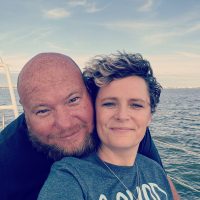

Telling Matthew:


His parents shared with him the possibility of a micro-TESE, where sperm can be extracted and frozen for later use. Matthew listened, and then said “Okay.” In their family, being a little different was part of the norm. Danyelle had always been very open with their children about their differences, such as Erin’s Down syndrome diagnosis. Danyelle always said, “I raised her normal because I didn’t know any different.” This approach has fostered strength, independence, and self-sufficiency in her children, Matthew included. It’s something that’s naturally accepted in their family.
Life after Klinefelter teen diagnosis:


Being at the low end of the spectrum, Matthew is minimally impacted by the symptoms of 47, XXY. He is able to build muscle with extra effort. The family went to a fertility specialist, who confirmed that there were no viable semen in the given sample. They gave Matthew the option to have the Micro-TESE, which he opted to do. The surgery was successful; viable sperm was found, and preserved for the future. Matthew recovered swiftly from the surgery, and three days later was fishing in a tournament. None of these treatments were covered by insurance, requiring the family to pay out of pocket for the surgery, retrieval, and preservation.
Testosterone replacement therapy:


Matthew today:
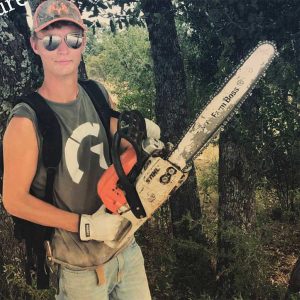

When Matthew was 18, he secured a job at a cattle ranch and struck out on his own. However, the isolated lifestyle wasn’t for him, and he found himself back at home. Within a couple of months he had a new job, and apartment. He works as a plumber’s apprentice, and “loves it.” Danyelle and Matt focused on raising their kids to be capable of caring for themselves. They can all do dishes, laundry, cook, and clean. Matthew is very handy, like his dad, and can do most home and truck repairs on his own.
Why they want to share their story:


There are also other members of their family with different health issues, including a sibling with a neurological condition. Having watched her mom advocate for her sibling, Danyelle said “I feel it’s in me to help as many people as I can, because I know how scared I was when Matthew got this diagnosis.” Danyelle has connected with many other KS moms, and has reassured them that everything is going to be ok.
What she would tell moms:






One Response
I am now 84 years old. When I was a teen and into my 20s, 30s and 40s, I struggled with the constant feelings of being oversexed ….. almost in the extreme. As a teen and in 20s I knew something was not right and I always felt extreme sexual cravings. During an operation at age 23 or 24 for a circumcision, it was discovered I had KS and was infertile.
I blame those terrible sex drives on the KS. I had found it very difficult to control myself at times.
Now I’m old and it no longer bothers me.